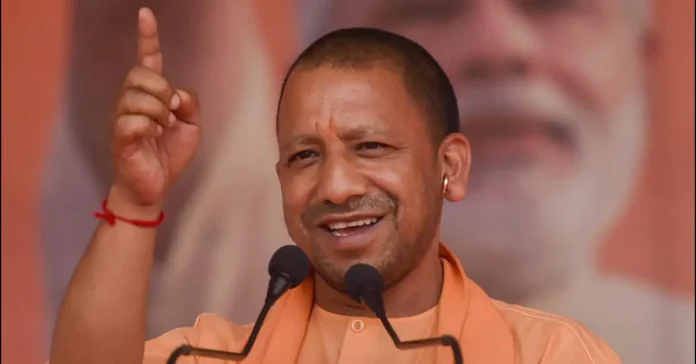A young man from Bareilly, Uttar Pradesh, found himself in hot water after posting a false claim about the demise of Chief Minister Yogi Adityanath. The incident not only underscores the potential dangers of spreading misinformation but also raises questions about the legal implications of such actions in the age of digital communication.
The controversy erupted when the individual, whose identity remains undisclosed, took to social media to announce the supposed death of Chief Minister Yogi Adityanath. The false claim quickly spread like wildfire across various platforms, sparking panic and confusion among citizens. However, authorities promptly intervened to dispel the rumors and clarify that the Chief Minister was alive and well.
The repercussions of the social media blunder were swift and severe for the Bareilly youth, as law enforcement agencies swiftly tracked down the origin of the misinformation. Subsequently, the individual was apprehended and taken into custody for spreading false information that could potentially incite public unrest and disrupt law and order.
The incident serves as a stark reminder of the power and pitfalls of social media in shaping public discourse and perceptions. While social media platforms have revolutionized communication and connectivity, they have also become breeding grounds for misinformation, fake news, and rumors. In the age of digital communication, false claims can spread rapidly, causing real-world consequences that can be difficult to contain.
Moreover, the incident underscores the legal ramifications of spreading misinformation online. In recent years, governments around the world have introduced laws and regulations to combat the spread of fake news and misinformation on social media. In India, the spread of false information can be punishable under various sections of the Indian Penal Code and the Information Technology Act, which aim to prevent the dissemination of content that could incite violence, promote hatred, or disrupt public order.
While the intention behind the Bareilly youth’s post remains unclear, the incident highlights the need for greater awareness and responsibility among social media users. In a digital age where anyone with internet access can become a publisher, it is imperative to verify the accuracy of information before sharing it with others. False claims not only erode trust in the media but also have real-world consequences that can harm individuals and communities.
Furthermore, the incident underscores the importance of media literacy and critical thinking skills in navigating the digital landscape. As misinformation becomes increasingly prevalent online, individuals must learn to discern fact from fiction and critically evaluate the sources and credibility of information they encounter. Education and awareness campaigns play a crucial role in empowering citizens to become responsible digital citizens who can navigate the complexities of the online world.
In the aftermath of the incident, authorities have urged citizens to exercise caution and restraint when using social media and to refrain from spreading unverified information. While social media platforms have taken steps to combat misinformation through fact-checking initiatives and algorithmic changes, ultimately, the responsibility lies with individual users to act responsibly and ethically online.
As the digital landscape continues to evolve, incidents like the Bareilly youth’s social media blunder serve as cautionary tales of the power and perils of online communication. By promoting media literacy, fostering responsible social media usage, and enforcing laws against the spread of misinformation, we can strive to create a digital environment that is safe, transparent, and conducive to informed discourse.
In the wake of this incident, it is imperative for both individuals and authorities to recognize the dual role of social media as a tool for communication and a potential source of misinformation. While digital platforms offer unprecedented opportunities for connectivity and expression, they also demand heightened vigilance and accountability. This episode serves as a call to action for concerted efforts to promote digital literacy, ethical communication practices, and robust mechanisms for combating the spread of misinformation. By fostering a culture of responsible social media usage and upholding the principles of truth and integrity in online discourse, we can mitigate the risks posed by misinformation and safeguard the integrity of public discourse in Uttar Pradesh and beyond.

